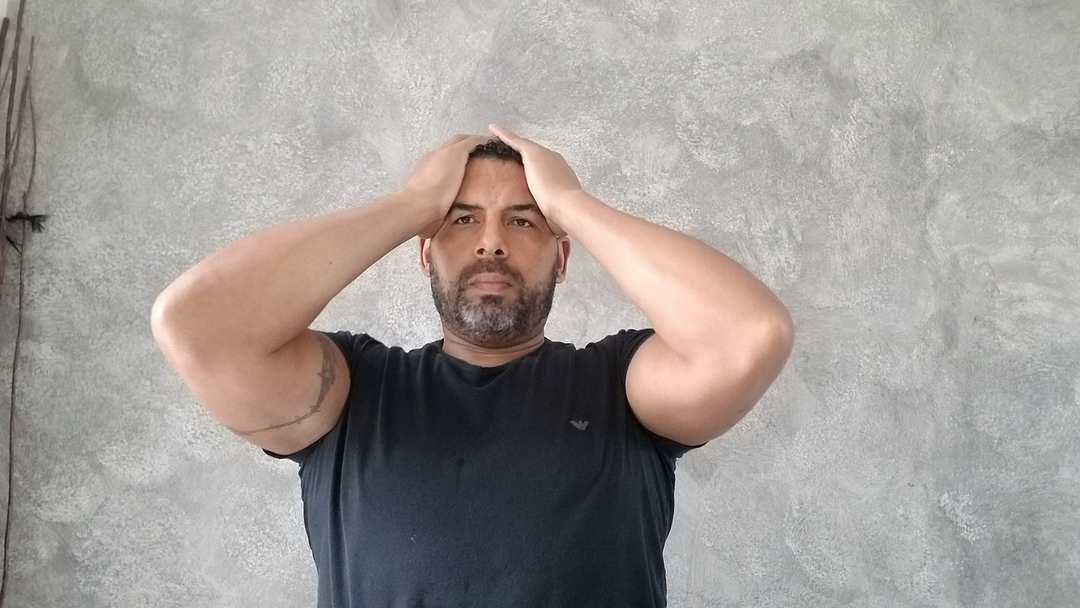No Results Found
The page you requested could not be found. Try refining your search, or use the navigation above to locate the post.

In Michigan, obstruction is a crime that involves interfering with law enforcement or other officials when they are trying to carry out their duties.
Obstruction can cover a wide range of actions, including lying to the police, physically interfering with an officer’s job, or helping someone else avoid arrest. Michigan law takes obstruction seriously, and it can lead to felony charges with significant penalties.
Under Michigan Compiled Law (MCL) 750.81d, obstruction is defined as any action that resists, opposes, or interferes with a police officer, firefighter, paramedic, or other emergency responder while they are performing their duties. This can include:
The key part of the law is that obstruction makes it harder for officials to do their jobs safely and effectively. Even if you don’t touch the officer, simply not following orders or making their job more difficult can still be considered obstruction.
750.81d Assaulting, battering, resisting, obstructing, opposing person performing duty; felony; penalty; other violations; consecutive terms; definitions.
Sec. 81d.
(c) “Serious impairment of a body function” means that term as defined in section 58c of the Michigan vehicle code, 1949 PA 300, MCL 257.58c.
Michigan law, specifically Michigan Compiled Law (MCL) 750.81d, makes it a crime to obstruct, resist, or assault a police officer while they are carrying out their duties.
This law applies not only to police officers but also to firefighters, emergency medical personnel, and other authorized officials.
Resisting involves refusing to comply with lawful orders, such as resisting an arrest.
Obstruction, on the other hand, refers to actions that make it difficult or impossible for an officer to perform their duties, like lying to police, refusing to move when asked, or hiding evidence.
If you are found guilty of resisting or obstructing, you can face a felony charge. The penalties for this crime depend on the circumstances:
There is a distinction between passive resistance and active resistance. Passive resistance is often seen in peaceful protests, where someone might sit or stand in a location without fighting back. While still illegal, passive resistance typically results in lower penalties than active resistance, which involves physical struggle or fleeing from an officer.
Michigan law also has a catch all law MCL 750.505.
750.505 Punishment for indictable common law offenses.
Sec. 505.
Resisting arrest and obstructing officers in Michigan whether the resistance is passive or active, it is important to understand that interfering with law enforcement can lead to felony charges and significant penalties.
For more details, you can refer to the laws here:
The page you requested could not be found. Try refining your search, or use the navigation above to locate the post.
The page you requested could not be found. Try refining your search, or use the navigation above to locate the post.

Can the police sieze your belongings and hold it without charging you with a crime?Forfeiture laws in Michigan allow the government to seize property – like cash, cars, or even houses – if they believe it was involved in a crime. This can happen even if the owner...
Defense against false accusations of Criminal Sexual Conduct (CSC) in MichiganDefending against a false accusation of Criminal Sexual Conduct (CSC) in Michigan is a serious matter and requires a well-prepared legal strategy. Here are several steps you should take to...
Other Articles
Understanding Compounding Charges Laws in Michigan Compounding charges refer to the illegal act of accepting or agreeing to accept a benefit in exchange for not prosecuting a crime. In Michigan, this is considered a serious offense, and the law specifically prohibits...
"Harris unveils new proposals targeting Black men as she looks to shore up Democratic coalition" CNNAmid the ongoing national issues, Vice President Kamala Harris introduced new initiatives on Monday aimed at addressing the needs of Black men as she works to bolster...
See you in the Home Depot lot.Oct 10, 2024 (Reuters) Cleary Gottlieb Steen & Hamilton will create a new category of non-equity partners, becoming the latest major U.S. law firm to move away from the traditional single-tier structure in which all partners have an...
What's the difference between a Magistrate and a Judge in Michigan?In Michigan’s court system, both magistrates and judges play important roles, but they have different responsibilities and authority. Understanding the differences between the two can help you know...

Defending against a false accusation of Criminal Sexual Conduct (CSC) in Michigan is a serious matter and requires a well-prepared legal strategy.
Here are several steps you should take to protect yourself:
The first and most important step is to immediately seek the help of an experienced criminal defense attorney.
A lawyer who specializes in CSC cases will know how to navigate the complexities of the legal system, protect your rights, and build a strong defense.
They will also help you avoid making mistakes that could hurt your case.
If you have been accused or charged with a crime.
Say nothing to anyone. Talk to us first.
Our firm is experienced in both State and Federal courts defending clients.
CALL NOW
It’s crucial to avoid contacting the person who accused you. Reaching out to the accuser could be interpreted as intimidation or harassment, and anything you say can be used against you. Communication should be handled exclusively through your attorney.
To defend yourself, you need to gather any evidence that supports your version of events. This can include:
Your attorney will help you collect and organize this evidence in a way that strengthens your defense.
In some cases, presenting evidence of your good character and reputation can be useful. Character witnesses—people who can testify about your integrity and behavior—might help show that it is unlikely you committed the crime. However, this is more supplementary and may not be the primary defense.
If the case goes to trial, your defense lawyer will have the opportunity to cross-examine the accuser. During this process, your attorney may expose flaws, contradictions, or exaggerations in the accuser’s testimony. This can cast doubt on the prosecution’s case and may lead to an acquittal.
Until your attorney advises otherwise, avoid making statements to the police, media, or anyone else about the case. Anything you say can be used against you. Politely decline to speak without a lawyer present and let your attorney handle communication.
Defending against a false accusation of CSC is challenging but possible with a strong legal defense strategy. The key is working closely with an experienced attorney who can help you gather evidence, challenge the accuser’s credibility, and build a case that demonstrates your innocence. Keep calm, follow your lawyer’s guidance, and protect your rights throughout the legal process.
Note: This article provides a general overview and does not substitute for legal advice. Anyone charged with a CSC offense should consult an attorney for specific legal guidance.
The page you requested could not be found. Try refining your search, or use the navigation above to locate the post.

Yes, if you have been falsely accused of Criminal Sexual Conduct (CSC) in Michigan and can prove that the accusations were malicious or knowingly false, you may be able to sue for damages. However, successfully suing for damages depends on several factors, including the circumstances of the false accusation, the impact it had on your life, and the evidence you can provide. Here’s how you might proceed:
Suing for damages after a false accusation can be difficult, especially if the accuser believed the accusation to be true or if it was a case of mistaken identity. To succeed in your claim, you must prove the accuser acted with malice or gross negligence. If the accuser cooperated with law enforcement and provided evidence in good faith, suing them may be more challenging.
If you were falsely accused of Criminal Sexual Conduct and suffered damages as a result, you may be able to pursue legal action. Common claims include defamation, malicious prosecution, false imprisonment, and intentional infliction of emotional distress. However, proving these claims requires clear evidence that the accusation was knowingly false or made with malice. Consulting with an experienced attorney is critical to evaluating your options and determining the best course of action.
Note: This article provides a general overview and does not substitute for legal advice. Anyone charged with a CSC offense should consult an attorney for specific legal guidance.
The page you requested could not be found. Try refining your search, or use the navigation above to locate the post.

Can the police sieze your belongings and hold it without charging you with a crime?Forfeiture laws in Michigan allow the government to seize property – like cash, cars, or even houses – if they believe it was involved in a crime. This can happen even if the owner...
Defense against false accusations of Criminal Sexual Conduct (CSC) in MichiganDefending against a false accusation of Criminal Sexual Conduct (CSC) in Michigan is a serious matter and requires a well-prepared legal strategy. Here are several steps you should take to...

In Michigan, resisting arrest is a serious crime. Under Michigan Compiled Law (MCL) 750.81d, it is illegal to resist or obstruct a police officer or any other law enforcement official when they are performing their duties. This law doesn’t only apply to police officers but also to firefighters, paramedics, and other emergency personnel.
Beside obstruction of “Justice” – This is a favorite of government officials to throw on for any reason they see fit. It may be that they are just having a bad day and you did not submit like a wet noodle.
The first and most important step is to immediately seek the help of an experienced criminal defense trial attorney. Because a trial is where you may have to take it and it won’t be cheap.
A lawyer who specializes in Resisting and Obstructing cases will know how to navigate the complexities of the legal system, protect your rights, and build a strong defense.
They will also help you avoid making mistakes that could hurt your case.
In Michigan, the law deals with obstruction and resisting arrest through a range of actions that can interfere with a law enforcement officer’s duties. These actions are illegal and are taken seriously by the courts. Michigan law outlines several levels of offenses for obstruction and resisting arrest, depending on the severity of the act and the resulting consequences.
Michigan law, specifically Michigan Compiled Law (MCL) 750.81d, makes it a crime to obstruct, resist, or assault a police officer while they are carrying out their duties.
This law applies not only to police officers but also to firefighters, emergency medical personnel, and other authorized officials.
Resisting involves refusing to comply with lawful orders, such as resisting an arrest.
Obstruction, on the other hand, refers to actions that make it difficult or impossible for an officer to perform their duties, like lying to police, refusing to move when asked, or hiding evidence.
If you are found guilty of resisting or obstructing, you can face a felony charge. The penalties for this crime depend on the circumstances:
There is a distinction between passive resistance and active resistance. Passive resistance is often seen in peaceful protests, where someone might sit or stand in a location without fighting back. While still illegal, passive resistance typically results in lower penalties than active resistance, which involves physical struggle or fleeing from an officer.
Resisting arrest and obstructing officers in Michigan whether the resistance is passive or active, it is important to understand that interfering with law enforcement can lead to felony charges and significant penalties.
For more details, you can refer to the Michigan Compiled Laws:
Understanding these laws can help prevent situations that might lead to arrest or additional charges.

Can the police sieze your belongings and hold it without charging you with a crime?Forfeiture laws in Michigan allow the government to seize property – like cash, cars, or even houses – if they believe it was involved in a crime. This can happen even if the owner...
Defense against false accusations of Criminal Sexual Conduct (CSC) in MichiganDefending against a false accusation of Criminal Sexual Conduct (CSC) in Michigan is a serious matter and requires a well-prepared legal strategy. Here are several steps you should take to...
Other Articles
Understanding Compounding Charges Laws in Michigan Compounding charges refer to the illegal act of accepting or agreeing to accept a benefit in exchange for not prosecuting a crime. In Michigan, this is considered a serious offense, and the law specifically prohibits...
"Harris unveils new proposals targeting Black men as she looks to shore up Democratic coalition" CNNAmid the ongoing national issues, Vice President Kamala Harris introduced new initiatives on Monday aimed at addressing the needs of Black men as she works to bolster...
See you in the Home Depot lot.Oct 10, 2024 (Reuters) Cleary Gottlieb Steen & Hamilton will create a new category of non-equity partners, becoming the latest major U.S. law firm to move away from the traditional single-tier structure in which all partners have an...
What's the difference between a Magistrate and a Judge in Michigan?In Michigan’s court system, both magistrates and judges play important roles, but they have different responsibilities and authority. Understanding the differences between the two can help you know...

Probable cause refers to the belief held by a reasonable person that a crime is currently being committed, has already been committed, or is likely to be committed in the near future.
Legal Repercussions of Probable Cause – Probable cause serves as the necessary foundation for obtaining a search or arrest warrant and empowers a police officer to make an arrest if a crime is witnessed in progress.
Reasonable suspicion has been defined by the United States Supreme Court as “the sort of common-sense conclusion about human behavior upon which practical people . . . are entitled to rely.”
Further, it has defined reasonable suspicion as requiring only something more than an “unarticulated hunch.” It requires facts or circumstances that give rise to more than a bare, imaginary, or purely conjectural suspicion.
Reasonable suspicion means that any reasonable person would suspect that a crime was in the process of being committed, had been committed or was going to be committed very soon.
Legal Repercussions of Reasonable Suspicion – When an officer has reasonable suspicion in a given situation, they are permitted to briefly detain or frisk the suspect.
However, reasonable suspicion alone does not authorize a full search of a person or their vehicle unless the individual is on school property.
It is important to note that reasonable suspicion does not provide sufficient grounds for an arrest or for obtaining a search warrant.
It is common for individuals to confuse the terms probable cause and reasonable suspicion, yet each has distinct implications that affect a person’s rights, the appropriate law enforcement procedures, and the overall outcome of an encounter with police.
Reasonable suspicion serves as a preliminary step prior to establishing probable cause; it indicates that there is a belief a crime may have occurred. This situation transitions into probable cause when the evidence suggests that a crime has most likely taken place.
In Terry v. Ohio, 392 U.S. 1 (1968), the court recognized that a limited stop and frisk of an individual could be conducted without a warrant based on less than probable cause.
The stop must be based on a reasonable, individualized suspicion based on articulable facts, and the frisk is limited to a pat-down for weapons.
An anonymous tip that a person is carrying a gun is not, by itself, sufficient to justify a stop and frisk. Florida v. J.L., 529 U.S. 266 (2000).
Florida v. Bostick 501 U.S. 429, 437 (1991) – A person’s refusal to cooperate is not sufficient for reasonable suspicion.
Illinois v. Wardlow, 528 U.S. 119, 124-25 (2000). – A person’s flight in a high crime area after seeing police was sufficient for reasonable suspicion to stop and frisk.
The same requirement of founded suspicion for a “person” stop applies to stops of individual vehicles.
United States v. Arvizu, 534 U.S. 266 (2002). The scope of the “frisk” for weapons during a vehicle stop may include areas of the vehicle in which a weapon may be placed or hidden.
Michigan v. Long, 463 U.S. 1032 (1983). The police may order passengers and the driver out of or into the vehicle pending completion of the stop.
Maryland v. Wilson, 519 U.S. 408 (1997). The passengers may not be detained longer than it takes the driver to receive his citation. Once the driver is ready to leave, the passengers must be permitted to go as well.
During a stop for traffic violations, the officers need not independently have reasonable suspicion that criminal activity is afoot to justify frisking passengers, but they must have reason to believe the passengers are armed and dangerous. Arizona v. Johnson, 129 S Court. 781, 784 (2009).
Legal Counsel and Your Rights
When facing legal challenges, particularly in criminal cases, it is advisable to seek legal counsel immediately.
An experienced attorney can provide guidance on how to navigate interactions with law enforcement while safeguarding your constitutional rights.
Since 1993 our expert legal defense in navigating criminal law matters and protecting your constitutional rights are what we eat for breakfast everyday.
Contact Komorn Law PLLC if you’re ready to fight and win.
Research us and then call us.

Can the police sieze your belongings and hold it without charging you with a crime?Forfeiture laws in Michigan allow the government to seize property – like cash, cars, or even houses – if they believe it was involved in a crime. This can happen even if the owner...
Defense against false accusations of Criminal Sexual Conduct (CSC) in MichiganDefending against a false accusation of Criminal Sexual Conduct (CSC) in Michigan is a serious matter and requires a well-prepared legal strategy. Here are several steps you should take to...
Other Articles
The page you requested could not be found. Try refining your search, or use the navigation above to locate the post.